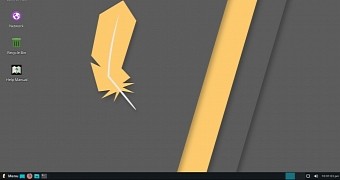Once again, Linux Lite users are among the first to install the latest Linux kernel series on their GNU/Linux distribution as project manager Jerry Bezencon announced the availability of Linux kernel 4.18 for all supported Linux Lite releases.
Available for the Linux Lite 4.x "Diamond," Linux Lite 3.x "Citrine," and Linux Lite 2.x "Beryl" operating system series, the Linux 4.18 kernel was released last weekend on August 12, 2018, by Linus Torvalds and brings lots of new features, new and updated drivers, as well as various performance improvements.
Users of the Ubuntu-based Linux Lite operating systems are usually among the first to install the most recent and advanced Linux kernel series, in this case, Linux kernel 4.18, which is now ready for mass deployments and will soon land in the stable software repositories of numerous popular GNU/Linux distributions.
Here's how to install Linux kernel 4.18 on Linux Lite
If you're using one of the supported Linux Lite operating system series mentioned above, you can now install the Linux 4.18 kernel by following the instructions provided below courtesy of project manager Jerry Bezencon, who urges users not to install this kernel if they don't need support for a specific device.
The easiest way to install the Linux 4.18 kernel on a 64-bit or 32-bit Linux Lite installation is to open the Lite Tweaks utility from Applications Menu > System, select Kernel Installer, and install the new Linux kernel version. Power users who prefer using the terminal can install the new kernel by running the command below.
sudo apt-get update && sudo apt-get install linux-headers-linuxlite-4.18.0 linux-image-linuxlite-4.18.0 -y
In either case, you'll have to reboot your Linux Lite computer after successfully installing the new kernel version. Also, keep in mind that you might need to repair any proprietary drivers installed on your computer as new kernels may break functionality with those drivers. For more details or if you need help, join the forum discussion.
"If you use proprietary drivers, this kernel may break functionality with those drivers. If you have proprietary drivers installed and you still decide to go ahead with this kernel install, you should be competent in repairing your drivers. If you aren't, DO NOT install this kernel," said Jerry Bezencon.

 14 DAY TRIAL //
14 DAY TRIAL //